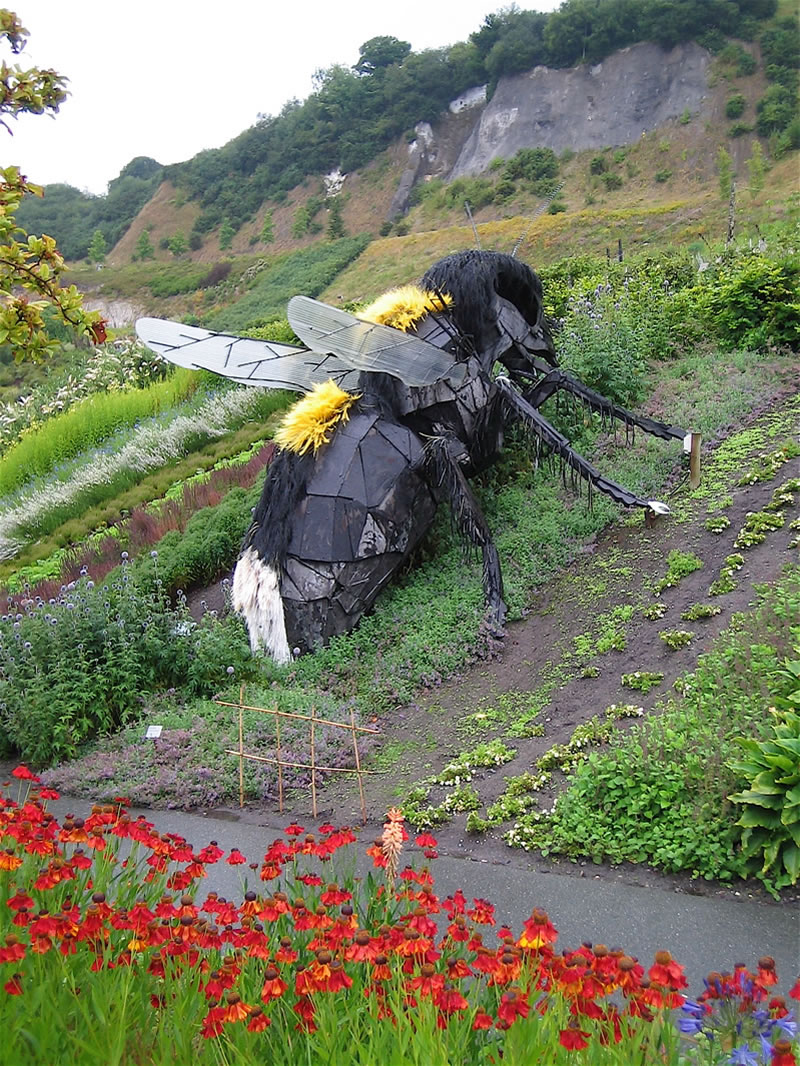
Posted on 04/18/2010 1:07:57 PM PDT by Coleus
It was an overnight operation under the darkest skies in New Jersey, where lone house lights were acres away on deserted country two-laners.
Grant Stiles, the beekeeper, moved quickly from truck to forklift, dropping boxed colonies of bees along the flat, dirt roads of Variety Farms in Hammonton. The land is not barren; it is populated by rows of blueberry shrubs. But they were off in the dark.
The only ground light was from the forklift lights, which illuminated the air-borne particles of gray farm-road dust. Stiles and his helper, Victor Ferrer, were in white suits, and his helper wore a netted helmet. The overall image was of men on the moon. The beekeepers as astronauts, the forklift a Lunar Rover. An overhead meteor shower through the black Pinelands night only added to the space imagery.
What Stiles does is not space age. Bee pollination of crops dates back to the earliest days of man conquering agriculture. Actually, it dates back to "the birds and the bees," and the promulgation of species from the beginning of time.
"They did this with horses and wagons in the old days," Stiles said.
Today, it’s done with tractor trailers and forklifts moving bees over interstate highways to rutted farm roads. Still, the primitive vestiges of beekeeping remain: the hives are kept in simple wooden boxes and the bees are calmed by smoke, which billows out of a simple contraption that looks like nothing more than a campfire coffee pot.
"We’re a migratory business," said Stiles, a man unbothered by a bee crawling along his forehead as he speaks. He is New Jersey’s largest beekeeper, centered in Fords, but his hives are always on the move, from the Carolinas to the Canadian border, where they go after pollination seasons to rest and eat well.
(Excerpt) Read more at blog.nj.com ...
THere were stories awhile back about how large numbers of bees were dying. Has that been resolved?

i’m not sure, i think it may have.. Today nj is now more concerned about 80% of the bats dying off from a white fungus.
There are some 20,000 species of bees, in seven to nine recognized families. Most people think of just one of them, the honey bee, which are in fact seven species and 44 subspecies. The first thought is for their honey, but they are also thought of for their value as crop pollinators.
Up until now, this has been grand, but with modern transportation of honey bees, there is a problem. That is, moving all these bees around makes them very prone to shared diseases, that can wipe out whole colonies.
But there may be a simpler solution. While only honey bees can make edible honey, they are not the only insect that can be used for pollination. So why not limit the movement of honey bees around the country, and instead use other bees to do the work of pollinating crops?
If done in a sensible manner, beekeepers will have the inconvenience of raising a second, non-competing insect side by side with their honey bees, with the honey bees staying home, and the other insect on the road. But in exchange, they can significantly lower the exposure of their honey bees to new diseases, which can wipe out the beekeeper financially.
That being said, I suppose it’s ironic that killer bees, the aggressive hybrid bees from South America, are known as well for their delicious honey, and some resistance to the diseases that threaten the other honey bees.
I seem to remember that researchers in Israel discovered the cause for the honey bee problems. I think it has been corrected. Then there was some craziness going around that cell phones were causing it, etc. That has apparently blown over, too.
I have heard that eating locally produced honey will help alleviate pollen allergies. It makes sense to me, but is it true?
I completely agree.
Disclaimer: Opinions posted on Free Republic are those of the individual posters and do not necessarily represent the opinion of Free Republic or its management. All materials posted herein are protected by copyright law and the exemption for fair use of copyrighted works.